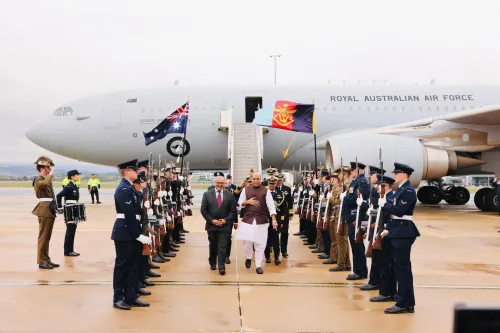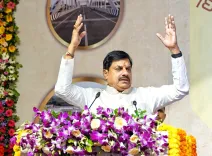Is there a proposal to impose transaction charges on UPI payments?

Synopsis
Key Takeaways
- No transaction charges on UPI payments confirmed by the government.
- UPI transactions have seen a massive growth in volume and value.
- Government incentives aim to maintain seamless UPI services.
- UPI continues to be a vital component of India's digital payment ecosystem.
- The focus remains on consumer benefit and financial inclusion.
New Delhi, Aug 18 (NationPress) The government has confirmed that there are no plans to introduce transaction fees on digital payments made via the unified payments interface (UPI). This statement was reiterated on Monday.
The National Payment Corporation of India (NPCI) facilitates UPI transactions, and its circular from 30.08.2019 allowed banks to charge a Merchant Discount Rate (MDR) of 0.30 percent on transaction values.
Minister of State for Finance, Pankaj Chaudhary, stated in a written reply to Lok Sabha that Section 10A of the Payment and Settlement Systems Act 2007 prohibits any bank or system provider from imposing charges on a payer or beneficiary when payments are made through electronic methods outlined in Section 269SU of the Income-tax Act, 1961.
The Central Board of Direct Taxes (CBDT) has classified UPI and RuPay debit cards as prescribed electronic payment modes as per Section 269SU of the Income-tax Act, 1961.
To maintain the continuity of UPI services among ecosystem partners, the government has implemented an incentive scheme over the past four years, from FY 2021–2022 to FY 2024–25.
During this timeframe, the government has provided approximately Rs 8,730 crore in incentive support, as noted by the minister.
UPI transactions have surged from 92 crore in FY 2017-18 to an astonishing 18,587 crore in FY 2024-25, reflecting a compound annual growth rate (CAGR) of 114 percent. Concurrently, the transaction value has escalated from Rs 1.10 lakh crore to Rs 261 lakh crore.
In July 2025, UPI achieved a remarkable milestone by recording over 1,946.79 crore transactions in a single month for the first time, as per government data. The overall volume of digital payment transactions in India has increased from 2,071 crore in FY 2017-18 to 22,831 crore in FY 2024-25, with a CAGR of 41 percent.
During this same period, the transaction value has risen from Rs 1,962 lakh crore to Rs 3,509 lakh crore, the minister added.








